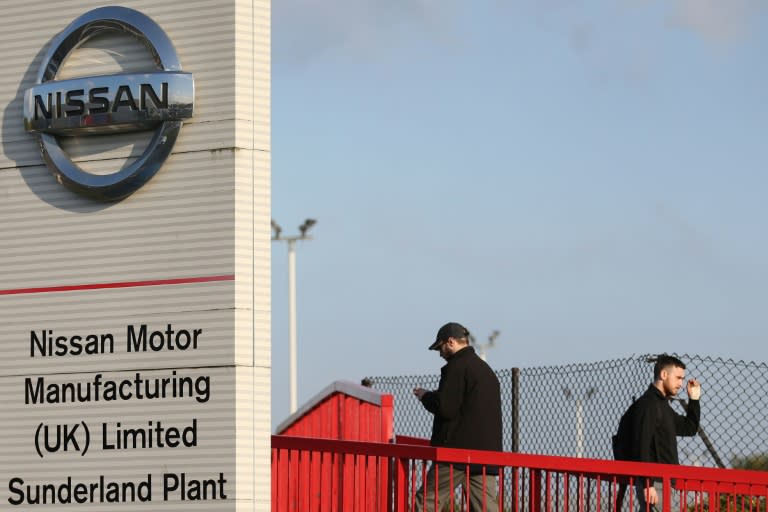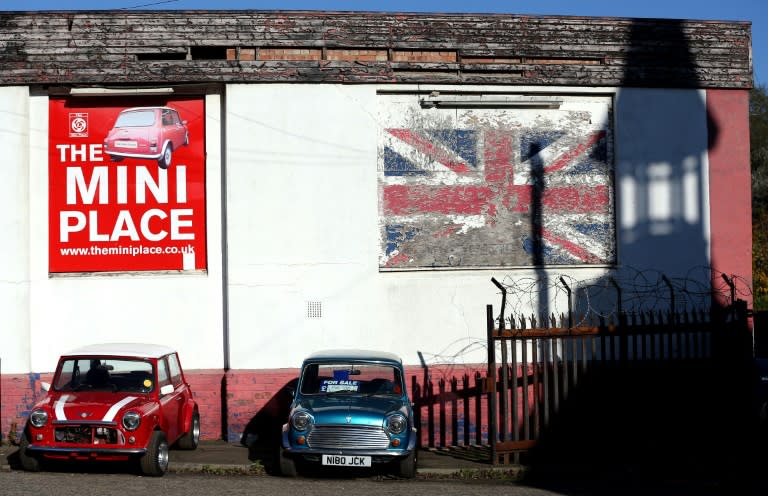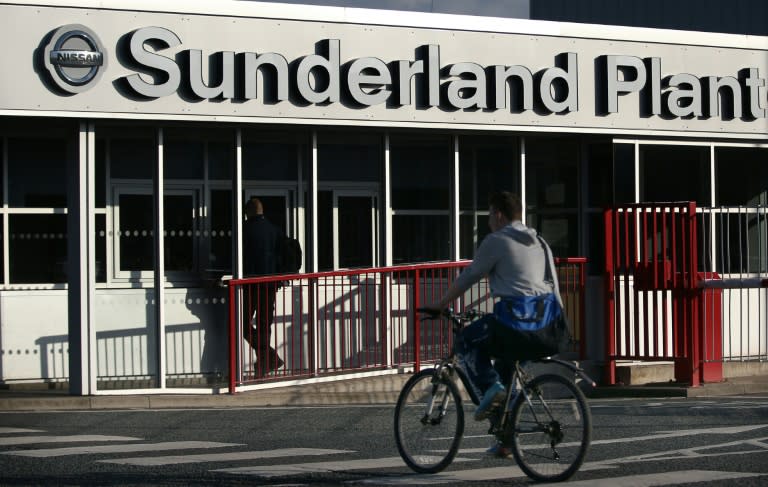Relief for pro-Brexit Sunderland as Nissan commits to UK future
The decision by carmaker Nissan to invest in its Sunderland plant comes as a great relief to the English city battered by decades of industrial decline and threatened by the Brexit vote. The Japanese manufacturing heavyweight helped save the northeastern city of 275,000 inhabitants from economic oblivion following the closure of the shipyards and coal mines when it decided to build a large factory there in the 1980s. "When the shipyards shut, all the good lads were recruited by Nissan, lads with qualifications," William, a retired shipyard worker, told AFP earlier this week. Thirty years after opening its doors, the factory has become a giant. More than 7,000 workers, technicians and engineers will this year assemble half a million vehicles, of which more than half are exported to the rest of the European Union. Nissan also claims that the plant supports a further 28,000 supply chain jobs in Britain. "Nissan's presence is massive for Sunderland and for northeast of England," Paul Watson, leader of Sunderland City Council, told AFP. "In the Eighties we lost the shipyard and the coal mines and we reinvented the economy and Nissan was a massive player in that." Despite the obvious risks of post-Brexit trade tariffs to the plant's lucrative export business, the city voted resoundingly in favour of leaving the EU, leading Nissan chief executive Carlos Ghosn to issue a warning about the plant's future. But he appeared convinced by Prime Minister Theresa May's "commitment to the automotive industry in Britain" during a meeting this month, announcing Thursday plans to build Nissan's new Qashqai sport utility vehicle at the plant. May immediately hailed it as "fantastic news" for Britain, adding that "families across the northeast will be delighted". - Unemployment rife, despite Nissan - The plant is the largest car factory ever in Britain, and dominates both the local economy and landscape with huge buildings on the former airfield stretching as far as the eye can see. Since the first Nissan rolled off the Sunderland production line -- a Bluebird model -- it has produced nearly nine million cars. It now builds the small four-wheel drive Juke model, the city run-around Note model, the electric Leaf, luxury division Infiniti and the Qashqai, subject of intense speculation since the June vote to leave the EU. Nissan also said Thursday it would also make the X-Trail four-wheel drive model at the plant. The manufacturer has not specified how much more it will invest in the site, where he has already spent more than £3.7 billion ($4.5 billion, 4.1 billion euros). A young employee at the plant told AFP that a shift in production away from Sunderland would have been "devastating for the general population", but that many workers believed Nissan would not have deserted the plant after "spending billions of pounds on it". However, he stressed that new taxes on EU car exports could still harm the factory, possibly forcing Nissan to eventually move to France or the United States if particularly onerous. It therefore came as a shock to some observers that the city voted so enthusiastically to leave the EU, with more than 60 percent backing Brexit. But locals were less surprised, with recent data from jobsite Adzuna.co.uk. revealing Sunderland to be by far the worst city in Britain in which to find employment, with 5.28 job seekers for every advertised vacancy. "There are a lot of people in Sunderland that the success of the economy hadn't touched," explained council leader Watson. "It's not like before. It used to be a nice, prosperous little town," added former docker William. "People went to work, then they went out: they went drinking, they went to clubs. That is not the case anymore because people can't afford to go out. There is a lot of disillusion in this area."




